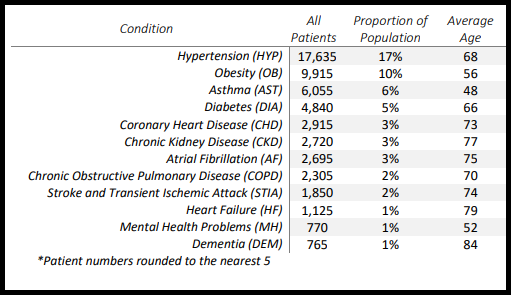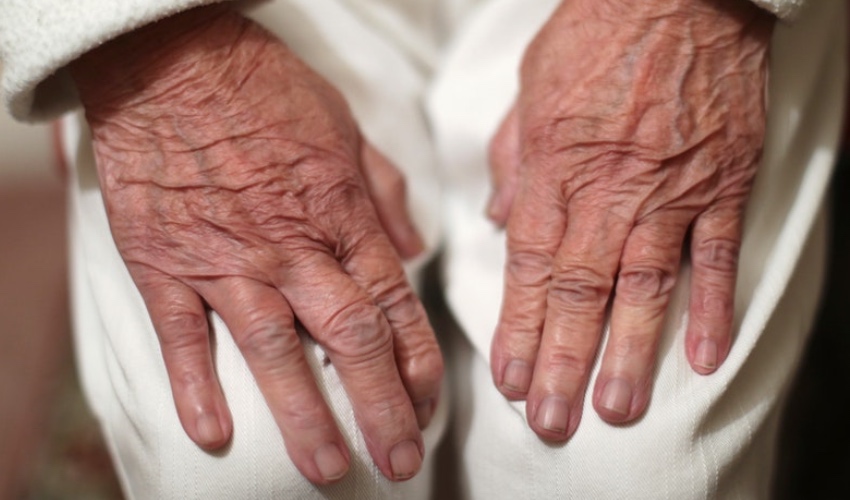


More islanders are living with multiple chronic conditions than in the previous year, with obesity and high blood pressure remaining the most common co-occurring conditions.
The multi-morbidity report – produced annually by Public Health using data from GPs – revealed that about 13% of Islanders are living with multiple long-term health conditions, many of them preventable, which is an increase of 1% from the previous year.
Findings show the prevalence of multi-morbidity – the presence of two or more long-term medical conditions in a patient – is not improving over time and may be worsening among those aged 85 and older.
Jersey's Head of Public Health has now said these findings could inform the upcoming public health strategy.

Pictured: Professor Peter Bradley.
Of those individuals having two or more long-term conditions, 7,985 individuals had two conditions (8% of the population), 3,410 individuals had three conditions (3% of the population), and 1,980 individuals had four or more conditions (2% of the population).
Studies show that people with multiple chronic conditions typically suffer a lower quality of life, have more frequent and lengthy hospital admissions, and may be more likely to die prematurely than those who do not have multi-morbidity.

Pictured: the breakdown of long-term conditions affecting Islanders.
At the end of 2022, there were more than 31,850 Islanders who had at least one of the 12 long-term conditions. 13,375 of these had two or more long-term conditions.
The government incentivises GPs to record patients with any of these long-term conditions through the Quality Improvement Framework (JQIF).
This number is an increase from the previous report, which head of Public Health Professor Peter Bradley said is a "unfortunate trend that we have seen across the world."
"Fewer people are managing to maintain a healthier weight," he said, "which can lead to a rise in long-term health conditions."

Pictured: high blood pressure is the most common long-term condition affecting Islanders.
According to the report, the most common condition was hypertension – high blood pressure – with over 17,600 sufferers. That means the condition affects 17% of the population.
Hypertension and obesity were the most commonly co-occurring conditions, being present in 4,380 people.
The most commonly occurring triad of conditions, all three of which are linked, was hypertension, obesity and diabetes, being present in 1,125 people.
Professor Bradley said: "We base a lot of our actions on things that are common in our population. We are expecting to build on these services that Islanders can already access through GPs and really focus on that as we move into the latter half of 2023 and preventing these conditions starting for people."

Pictured: Dementia is the least common long-term morbidity, but patient numbers are still on the rise.
The least common condition was dementia. However, the number of these patients rose from 715 to 765.
This rise may be due to an increased ability to diagnose patients with dementia, but Jersey's ageing population also means there is a projected increase in patients.
The second-least common condition was 'Mental Health Problems', which have decreased from 825 to 770.
The number of morbidities people suffer from generally increases with age. The average age of someone who has one morbidity is 55 years, whereas the average age of those with 4 or more morbidities is 77 years.
Over half of the population over 85 are living with multi-morbidity, while over half of over-65s live with at least one long-term health condition.
Some conditions are found more commonly in certain age groups. For example, dementia, heart failure and chronic kidney disease affect mainly older people, whilst asthma and mental health problems affect a much broader range of age groups.
Professor Bradley said: "these conditions are more common as we get older, and it's about preventing them, delaying the onset, and working to make sure that if someone has high blood pressure, we don't see further effects and conditions because of that."
Comments
Comments on this story express the views of the commentator only, not Bailiwick Publishing. We are unable to guarantee the accuracy of any of those comments.